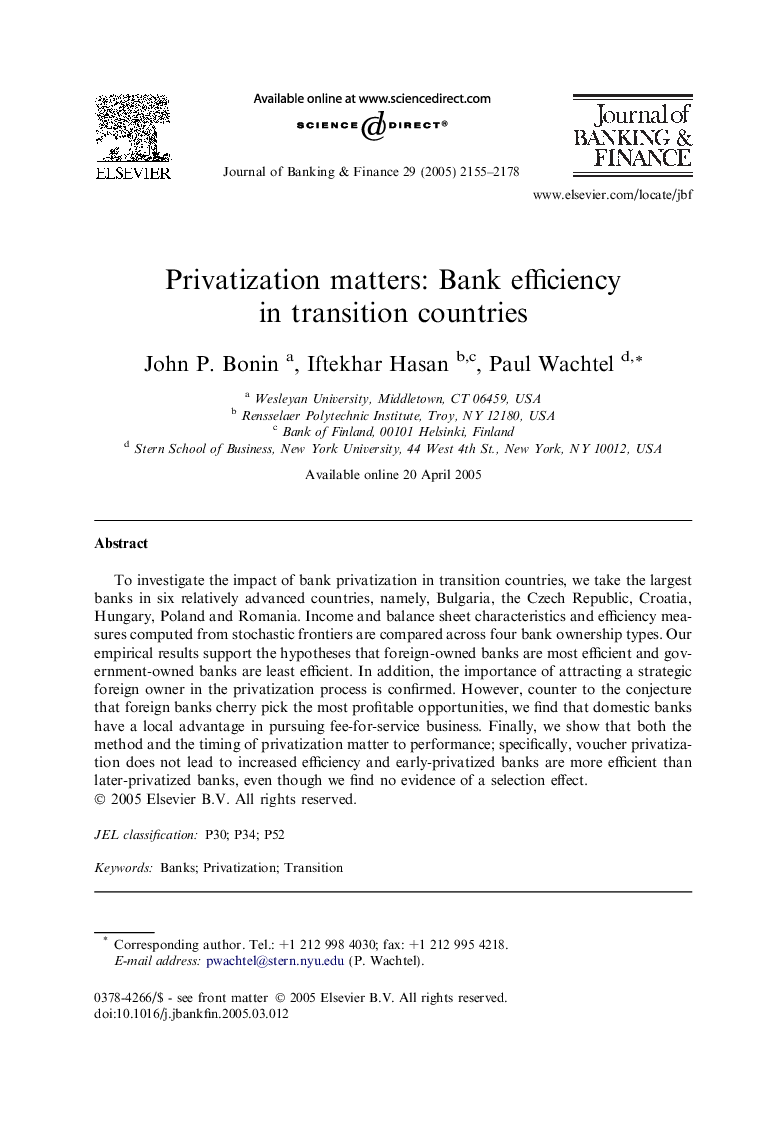| Article ID | Journal | Published Year | Pages | File Type |
|---|---|---|---|---|
| 5091507 | Journal of Banking & Finance | 2005 | 24 Pages |
To investigate the impact of bank privatization in transition countries, we take the largest banks in six relatively advanced countries, namely, Bulgaria, the Czech Republic, Croatia, Hungary, Poland and Romania. Income and balance sheet characteristics and efficiency measures computed from stochastic frontiers are compared across four bank ownership types. Our empirical results support the hypotheses that foreign-owned banks are most efficient and government-owned banks are least efficient. In addition, the importance of attracting a strategic foreign owner in the privatization process is confirmed. However, counter to the conjecture that foreign banks cherry pick the most profitable opportunities, we find that domestic banks have a local advantage in pursuing fee-for-service business. Finally, we show that both the method and the timing of privatization matter to performance; specifically, voucher privatization does not lead to increased efficiency and early-privatized banks are more efficient than later-privatized banks, even though we find no evidence of a selection effect.
